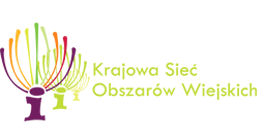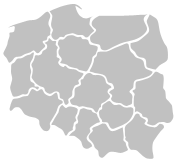ENRD Newsletter August 2017
NEWS:
The ENRD Contact Point has launched thematic work on the topic of ‘Smart Villages’ aimed at identifying ways of revitalising rural services through digital and social innovation.
A dedicated Thematic Group will explore between September 2017 and July 2018 how the Rural Development Programmes (RDPs) can be best used to support the creation of more vibrant, sustainable and attractive rural areas. Specifically, it will look at how rural services can be improved and made more sustainable through the deployment of Information and Communication Technology (ICT) tools and through support for community-led actions and projects.
This topic is part of the broader ENRD thematic work on ‘Smart and Competitive Rural Areas’ and will also feature a European Seminar and future editions of the EU Rural Review and the EAFRD Projects Brochure.
Building on the work already carried out on the topic of ‘Resource Efficiency’, a new ENRD Thematic Group will explore how the Rural Development Programmes (RDPs) can be best used to support the ‘Sustainable Management of Water and Soils’.
The thematic work on this topic will continue to explore various ways of improving policy implementation and to provide recommendations on how the RDPs can best address issues related to water and soil management. The core activities and outputs will include a dedicated Thematic Group, running between September 2017 and July 2018, as well as a European Seminar and future editions of the main ENRD publications.
A three-month public consultation on how to make the EU food supply chain fairer was launched by the European Commission on 16 August 2017.
All citizens and organisations, ranging from farmers to public institutions, are invited to contribute their views on how to improve farmers’ position in the food supply chain, specifically concerning unfair trading practices; market transparency; and producer cooperation.
The consultation will run until 17 November 2017 and the results will complement work on the simplification and modernisation of the Common Agricultural Policy (CAP).
The ENRD Contact Point has made available factsheets on the design and implementation of Agri-environment-climate Measures (AECM) under the European Agricultural Fund for Rural Development (EAFRD). The factsheets cover the following topics:
Avoiding the risk of double funding;
Finding solutions to control AECM support for input reductions;
Collective approaches to AECM; and
Result-based approaches to AECM.
“Looking for Europe’s next innovation leader,” the European Commission, under its Horizon 2020 programme, is seeking to invest and support innovative small and medium-sized enterprises (SMEs) in developing and expanding their businesses.
Funding and business support – including feasibility studies, testing, piloting, scaling up, training, coaching – are available for SMEs working for sustainable and competitive agriculture, forestry, agri-food and bio-based sectors and many other thematic areas.
The European Commission’s DG AGRI has launched a call for tenders for an evaluation study to analyse the administrative burden arising from the Common Agricultural Policy (CAP).
The deadline for submission of offers is 18 September 2017. Read more about procedures and past projects on evaluation of policy measures in agriculture.
This European Charter aims to promote and valorise mountain agriculture and food products by mobilising actors ranging from consumers to EU institutions around concrete actions.
Published by Euromontana, the European association of mountain areas, the Charter has been made available in Bulgarian, English, French, German, Italian, Romanian and Spanish – interested individuals can sign it here.
Eight Italian regions will benefit from investment support to boost SMEs in developing their agricultural and agri-food businesses under a newly launched Financial Instrument: the Agricultural Multi-Regional Guarantee Platform.
The instrument is co-financed from the European Agricultural Fund for Rural Development (EAFRD) and applies to regions’ Rural Development Programme Measures 4.1 (investment in agricultural holding) and 4.2 (investment in processing, marketing and/or development of agricultural products).
Exploring agriculture, development and innovation in Spanish rural areas, the Yearbook of family farming in Spain 2017 has been published online by the ‘Unión de Pequeños Agricultores y Ganaderos’, UPA (Union of Small Farmers and Breeders).
Rural development practitioners will find a variety of articles, analytical studies and data, including on the Common Agricultural Policy (CAP) post-2020 and LEADER/CLLD.
A recent study by the European Parliament’s Think Tank examines how threats to soils and their related services are linked to agricultural soil management and how they can be mitigated.
The publication highlights trade-offs and synergies between aspects affected by soil management such as climate change mitigation, water and air quality, biodiversity, food security and farm income. It ends with a set of recommendations for policy actions.
A new online platform, Bioeconomy Knowledge Centre, has recently been launched by the European Commission to bring together a wide range of resources and science-based evidence on bioeconomy approaches and solutions.
The platform contains a data catalogue and a library of relevant publications, including some specifically examining the contribution of European agriculture to the bioeconomy.
A recent study commissioned by DG AGRI examines the extent to which organic supply chains in the EU function effectively to respond to growing organic market demands.
The publication investigates the creation and distribution of added value in organic supply chains through a number of case studies in different EU countries. The findings suggest that higher added value is created in organic compared to conventional supply chains.
See more information on the ENRD website













